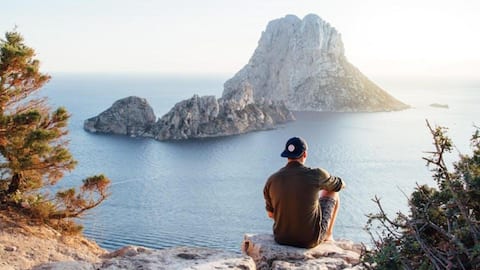Decoding the wellness benefits of slow travel
What's the story
Slow travel offers a refreshing alternative in a fast-paced world where life often feels like it's constantly racing forward. It encourages individuals to fully immerse themselves in their destinations, embracing a leisurely pace and a deeper connection with their surroundings. While the benefits of slow travel are numerous, one aspect that deserves particular attention is wellness.
Explaining
What is slow travel?
Slow travel isn't just about reaching a destination; it's about cherishing the journey itself. Moving at a relaxed pace allows time for genuine connections and authentic experiences, liberating one from the rush of touristy checklists. By prioritizing savoring the essence of time, slow travel reduces overall stress and anxiety levels. Hence for the well-being of both body and soul, it's worth embracing.
Appeal
Tips for a meaningful slow travel
The rise in searches for "staycation hotels" and "slow life" on platforms like Pinterest highlights the increasing appeal of slow travel. Planning involves choosing culturally rich destinations, eco-friendly accommodations, and slower transportation like trains or busses. Immersing in local communities through markets and festivals enriches the experience. Opting for a less-packed itinerary allows for deeper exploration and fosters more meaningful connections with each location.
Staycation
Practicing slow travel
A staycation is ideal for slow travel, allowing you to relax in familiar surroundings like a nearby resort and soak in local culture. With no fixed itinerary, one can engage in leisurely strolls and uncover hidden gems like scenic spots and quaint cafes. Affordable and stress-free to arrange, a staycation offers a chance to relax and reset from the daily grind.
Features
Role of physical and mental programs
Slow travel emphasizes activities focused on relaxation and personal growth, such as spa treatments, wellness workshops, nature walks, yoga, guided meditation, health workshops, cooking classes, and clay therapy. Recognizing their appeal, holiday retreats and vacation homes are crafting immersive experiences for guests to enjoy at their own pace. The goal is to urge individuals to detach from external distractions and reconnect with themselves.
Well-being
Slow travel's connection with nature
Many slow travel experiences involve spending time in nature, whether it's hiking through pristine landscapes or relaxing on a secluded beach. Being in nature has been shown to have numerous health benefits, including reducing blood pressure, improving mood, and boosting overall well-being. Additionally, engaging with locals, trying new foods, and participating in cultural activities can broaden one's perspective and enhance emotional well-being.
